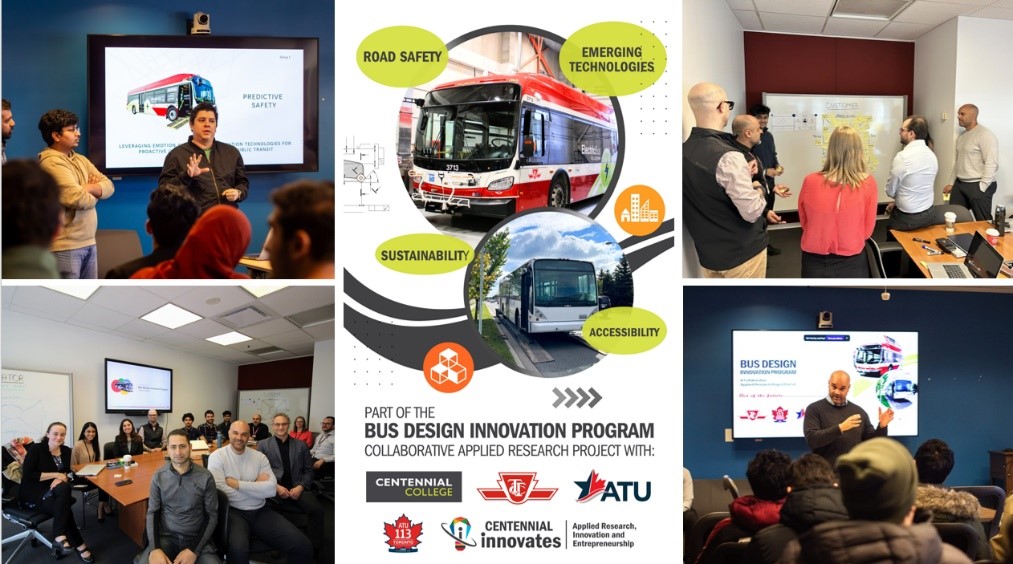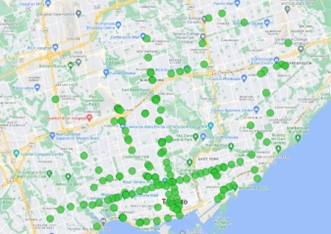Scouting for Emerging Tech
Peer Benchmarking & Research
The TTC will continue to benchmark our own operational performance against leading transit agencies worldwide. Through industry benchmarking organizations, such as APTA, COMET, CUTA, OPTA, ZEBRA, and others, we contribute our own operational performance data and learnings, and we benefit from others.
Proof of Concepts & Pilots
We commit to explore and adopt new technologies. Currently, the emerging technologies we are building adoption strategies for include:
- Big Data and Data Analytics
- Artificial Intelligence and Machine Learning
- Electric Vehicles
- Renewable Energy Generation and Storage
- Autonomous Vehicles
- Robotics
- Track/overhead and signal asset real-time monitoring
Pilot Spotlight: Bus Design Innovation Program
In partnership with Amalgamated Transit Union (ATU) International and ATU Local 113, we created the Bus Design Innovation Program in 2023 to jointly explore safe and environmentally sustainable design features to improve customer experience and provide bus operators with a more secure and healthy working environment. The lessons learned will inform the design of future buses. In addition to being an innovative approach to collaboration with the ATU, the program leverages the Corporate Innovation workstreams to identify new design features.
The first three design features being pursued in this program, are ATU suggestions. They are:
- Semi-Active Operator Seat
- Camera Mirror Systems
- Different variations of the Operator Barriers

Pilot Spotlight: Geofencing
The geofencing pilot is designed to optimize the operation of hybrid-electric buses by automatically switching to EV mode when entering designated "green bus transit zones." These zones include high-traffic areas like TTC garages, subway stations, bus platforms, and loops, where buses spend the most time and operate in confined spaces. In these zones, the bus’s diesel engine shuts off, allowing it to run entirely on electric power. Once the bus exits the zone, the diesel engine resumes, recharging the battery before the next zone is reached.
Potential Benefits:
- Improves air quality and reduces noise pollution in areas highly populated or confined areas.
- Reduction of emissions at TTC garage locations.
- Reduction of engine on time.
